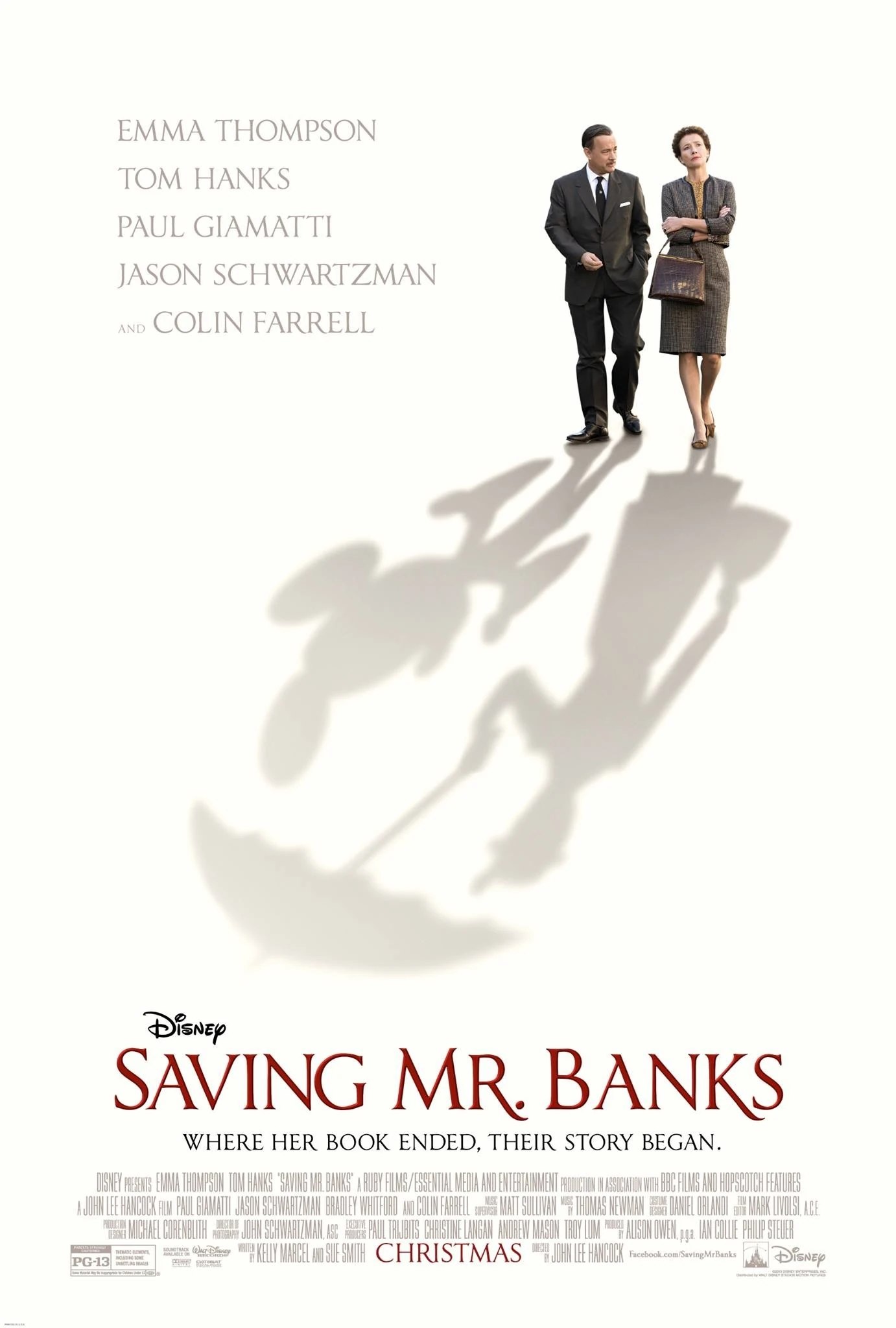
Over the holidays, I saw Saving Mr. Banks in theaters and was reminded of the importance of back story. I personally very much enjoyed the movie primarily because of its stress on back story and the impact that had on the drama.
The movie could have stood on its own with just a story of P.L. Travers versus Walt Disney. Easily. Had the movie makers decided to take it that direction, they certainly had enough material to work with. There is plenty of drama between the big movie god and penniless but overly emotional author.
But the movie was so much richer because it wasn't about that at all.
[SPOILER ALERT] Emma Thompson's character, author P.L. Travers, exclaims in the middle of the movie, "You think Mary Poppins is saving the children, Mr. Disney?"
Angry and disgruntled, she walks off.
 Woven throughout the movie, these scenes of Travers' childhood become the foundation for the story.
Woven throughout the movie, these scenes of Travers' childhood become the foundation for the story.We begin to soften toward Travers. We start to understand why she cries. Why she is such a stickler when it comes to her books, why she has to have it just how she imagined it.
And we learn how much of a risk it was to give up Mary Poppins to Walt Disney.
In the movie, when Walt Disney learns that P.L. Travers is actually Helen Goff, when he learns her back story, he figures it out too.
"It's not the children [Mary Poppins] comes to save.
It's their father. It's YOUR father, Travers Goff."
 It's no wonder it is Walt Disney sharing his own back story with her that convinces her to put her beloved Mary Poppins in his hands.
It's no wonder it is Walt Disney sharing his own back story with her that convinces her to put her beloved Mary Poppins in his hands. As a writer, the movie reminds us of valuable advice: know your character's back story.
Doesn't mean you have to include it in your book. You don't have to stop everything to make sure we know sh loved blue when she was a child. Just know what it is. But you're probably going to end up sharing it.
From my limited experience, if you know their back stories, you're probably going to end up putting it in, some way or another. A snippet here or there, at least. Why?
Because a character's back story tells the audience where he's come from and how that impacts where he's going. It helps us understand the worth of the things in the present. It's the rudder to the ship, the wind in the sails.
Based on the movie, the story of Mary Poppins becoming a Disney movie becomes more than just a battle to get movie rights. It blossoms into a story of redemption, risk, and family. All because of back story. It becomes powerful because the focus is on saving Mr. Banks. That hits closer to home, means more than even our beloved Disney classic.
How do you save Mr. Banks in your story? Make sure your readers know where your characters have come from and how that is affecting their actions in the present.
Soli Deo Gloria.
Follow me on Facebook!
Related Posts:
Different Doesn't Mean Success
An Austenland Movie Review
What Bad Books Have that Good Books Don't
So that was...suspenseful
Beginnings


No comments:
Post a Comment